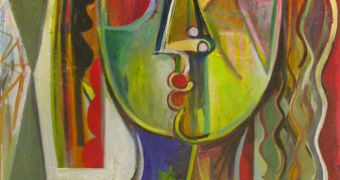Your mother tongue has a greater impact on your life than you would have thought.
It is proven that you perceive musical rhythm according to its rhythm.
Now, researchers prove it influences your sensory abilities: a new research in color perception shows that mother tongue language dictates how you see your surroundings.
For example, in Russian, there are two different words instead of just one for "blue": "goluboy", meaning light blue, and "siniy", dark blue.The researchers found that Russian-speaking people perceive light and dark blue hues differently, compared to their English-speaking counterparts.
A MIT team led by Jonathan Winawer selected 50 volunteers from the Boston area, Massachusetts, US, of whom about half were native Russian speakers.
The subjects watched three blue squares on a screen and had to signal if the sole square on top fitted the hue on the bottom right or bottom left square.
In the experiment a sum of 20 different blue shades were employed. The tests were assigned to two types: in one variant, the three squares were of a similar shade, in the other one, the square that was of a significantly divergent hue (like one dark blue out of light blue).
Those with English as mother tongue could not make a better difference between dark and light blue than they could distinguish two nuances of blue within a similar shade.
Those with Russian as mother tongue were 10% faster at making the difference between light (goluboy) blue hues and dark (siniy) blue hues than between blue hues of the same shade. "This is the first time that evidence has been offered to show cross-linguistic differences in color perception in an objective task," said Winawer.
When Russian-speaking subjects had to memorize an eight-digit number while accomplishing the color test, their performances decreased. "This is because the concentration needed to memorize the number interfered with their verbal brainpower - removing the extra boost that the Russian language gives in classifying light and dark blues", believes Winawer.

 14 DAY TRIAL //
14 DAY TRIAL //